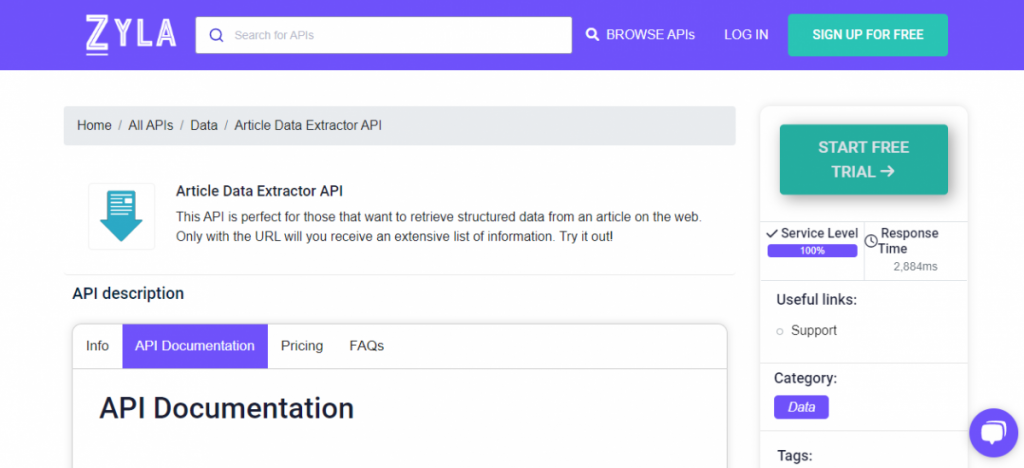
Tips To Employ With The Article Scraping API
In today’s information-driven world, accessing and analyzing vast amounts of online content is a critical task for businesses, researchers, and developers.
This is where Article Scraping APIs like Article Data Extractor API come into play. Article Scraping APIs enable users to automatically extract valuable data and insights from articles, blogs, and news sources on the web.
These APIs provide a streamlined and efficient way to gather information, empowering users to unlock new opportunities, make data-driven decisions, and stay ahead in their respective fields.
Tips To Employ The Article Data Extractor API
- Identify Your Data Needs: Clearly define the specific information you require before using an Article Scraping API. This helps tailor your scraping efforts and maximize value.
- Choose a Reliable Provider: Select a reputable and ethical API provider that respects terms and conditions. Consider factors like reliability, scalability, documentation, and support for seamless integration.
- Ensure Data Quality: Define data points and structure (e.g., title, author, content) for consistency. Implement data cleaning and normalization techniques to eliminate errors.
- Handle Errors Effectively: Anticipate and handle potential errors by implementing robust error handling mechanisms. Monitor API usage and response times to identify and resolve issues promptly.
- Respect Terms and Legal Boundaries: Adhere to website terms of service and legal boundaries, including scraping restrictions and copyright laws. Be mindful of intellectual property rights.
- Prioritize Data Privacy and Security: Protect sensitive information obtained through scraping by using encryption, secure storage, and access controls. Comply with data protection regulations.
- Monitor Website Changes: Regularly monitor websites for changes that may impact the scraping process. Update scraping scripts or configurations accordingly to maintain accuracy.
- Combine Scraped Data with Analysis Techniques: Analyze scraped data using techniques like natural language processing, sentiment analysis, or machine learning. Derive insights and make informed decisions based on the articles.
With Article Data Extractor API you will be able to scrape and retrieve all the relevant information from any article you find on the web. Forget about ads, banners and other unessential parts as well. Only receive all the data related to the article of your choice.
This API is perfect for those that want to retrieve structured data from an article on the web. Only with the URL will you receive an extensive list of information. Try it out!

How Does It Work?
With the Article Data Extractor API, all you need is the URL of an article or blog as the sole parameter. Once provided, the API goes to work, effortlessly scraping and extracting essential information including the title, text, published time, media links, and much more. The best part? You save valuable time while receiving this data in a well-structured format, allowing you to easily filter, query, and store the vast array of information available on the web. Unlock the full potential of web data with the convenience and efficiency of the Article Data Extractor API.
All you have to do is enter a link and the API will handle the rest.
This is an example of how this API works:
Most Common Use Cases
This API is perfect for any marketing agency or any news platform that wants to retrieve the most important information from an article. This is the author’s name, the text from the article itself, and do not forget about TAGS. With this API all the tags embedded in the article will be available.
Also, this is great to compare what images are using other blogs or news forums in different articles.
So, if you have a large collection of articles, you will be able to filter by author’s name, by tag elements, or even by published dates. This API will help you to have your articles better organized.

